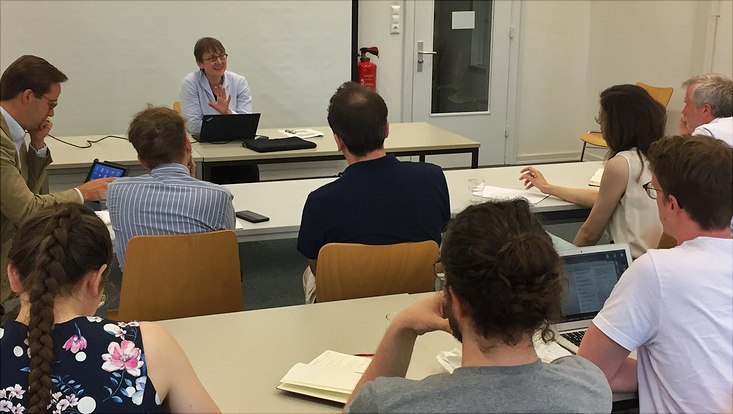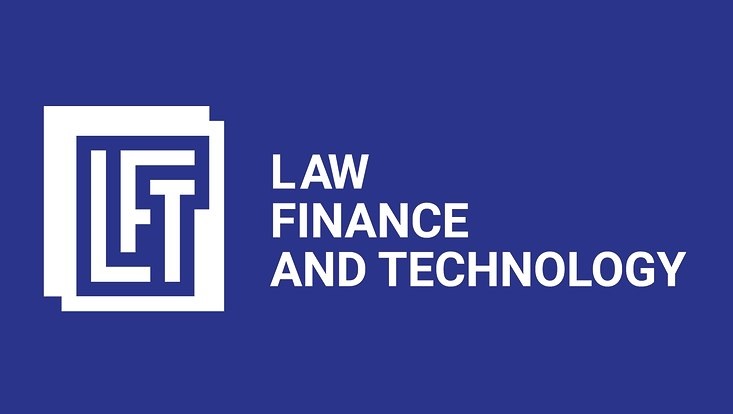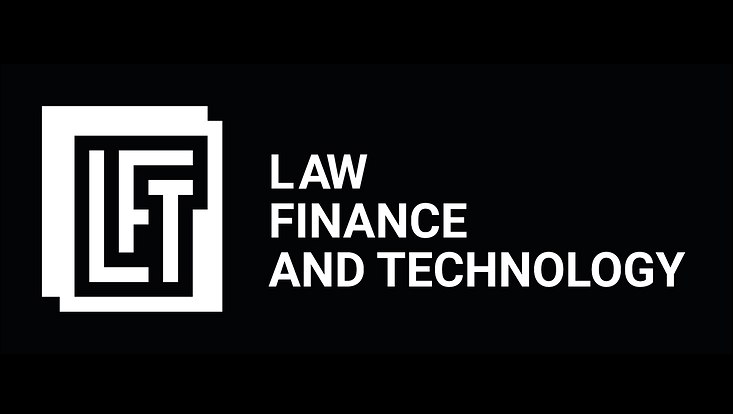für Recht und Ökonomik
Professor Heike Schweitzer on the challenges of competition law in the digital economy
20. Juni 2019, von Internetredaktion

Foto: LFT
In the last LFT Lunchtime Workshop, June 20, Professor Heike Schweitzer enlightened us with a brilliant talk on the challenges of competition law in the digital. Among the diverse topics emerging from the digital revolution, particular attention was dedicated to the promotion of competition for and on digital platforms, especially when platforms themselves act as “regulators” within their own digital space, and on the risk of dominant platforms levering their market powers on consumers. Three timely questions motivated the debate: Is the digital economy fundamentally different from the traditional economy, is it changing market dynamics and supervision? If so, do we need to rethink our competition law concepts and tools? Moreover, is competition law alone able to cope with these new developments, or would we instead need to integrate it with other regulatory tools?
Undoubtedly, the digital economy has altered the basic elements of competition law, such as pricing. The expansion of zero-price markets has redirected the review over quality and innovation: the use of personal data as compensation for the use of digital services, but also the emerging of new advertisement techniques based on personal data are posing severe challenges to traditional competition law assessment tools. Besides, digital platforms have been game-changers in intermediation by creating new markets and not having any territorial constraint. Not least, they also enjoy regulatory powers within their market spaces that are capable of distorting and harming competition. From a competition policy perspective, Professor Schweitzer argues that dominant platforms must have a special responsibility to ensure that their rules do not prevent free and fair competition.
In this context, the main question is how to guarantee the effective and timely intervention by competition authorities. On this point, Professor Schweitzer suggests that competition law should go beyond the test of direct consumer harm, which is increasingly hard to assess in the digital economy, and add greater emphasis on the protection of market processes and fair competition, especially considering the dominant platform's tendency to build digital conglomerates. Therefore, possible solutions to tackle these concerns and foster technological innovation should integrate a mix of rules- and standards-based approaches to the typical antitrust case-by-case methodology. In other words, a combination of competition law instruments with other regulatory tools should be preferable in dealing with this more complex reality. Finally, possible proposes would range from the potential illegality of best price clauses which leverage on platforms’ scale to limit competition; the extension of data portability concept; and the interoperability of complementary services. If you are curious about this subject, take a look at her report, with Jacques Crémer and Yves-Alexandre de Montjoye, "Competition policy for the digital era", prepared for the Directorate-General for Competition of the European Commission.


